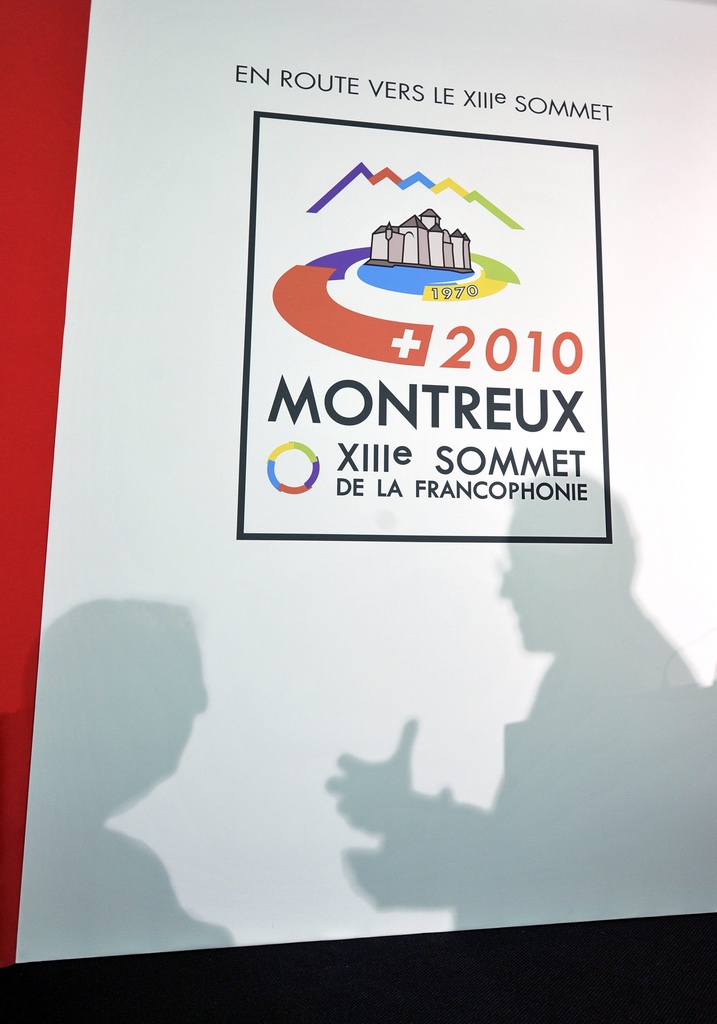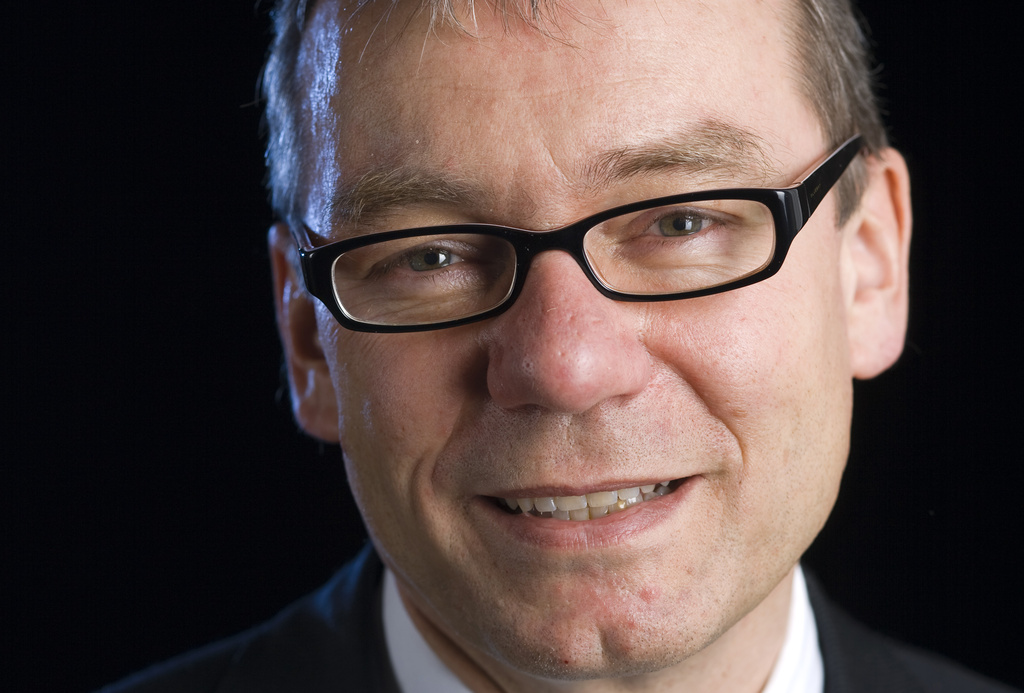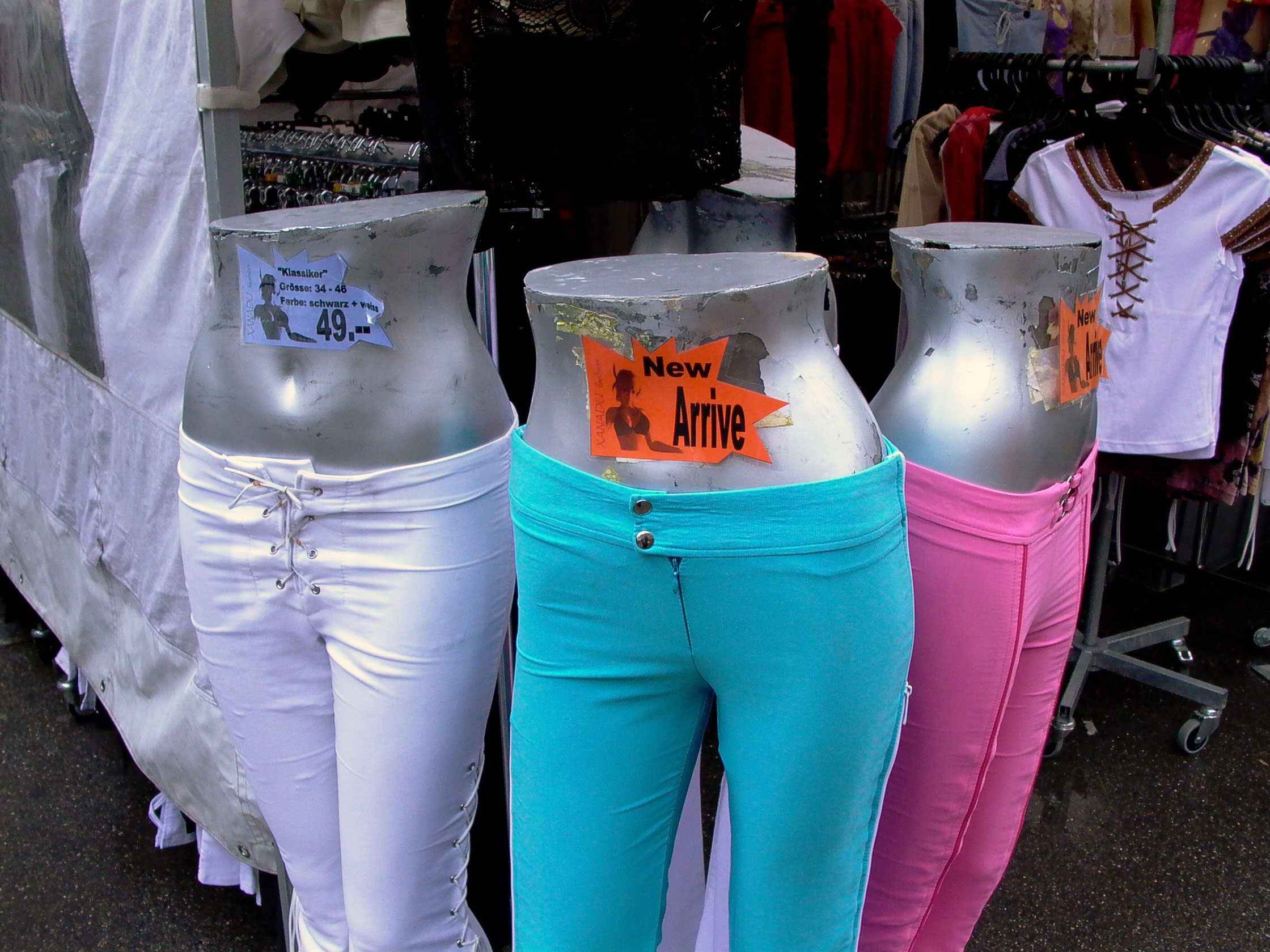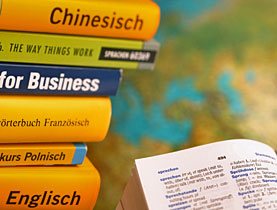Montreux summit to “pioneer” global governance

The Swiss foreign minister is calling on the Francophonie summit of French-speaking nations to exert its influence and become a pioneer in terms of global governance.
The Swiss city of Montreux on Lake Geneva will host the 13th Francophonie Summit from October 22-24, which will focus on issues of global governance and democracy, sustainable development and cultural diversity.
Some 70 heads of state, 3,000 delegates and 600 journalists are expected to attend the get-together, representing one-third of all United Nations General Assembly member states, from both developed and developing nations.
“We need to be aware of this strength and use it to fight certain battles,” Micheline Calmy-Rey told swissinfo.ch at a news conference in Geneva on Friday.
But the International Organisation of La Francophonie (IOF) and its biennial summit should not simply be about cultural diversity and the promotion of French or it risks being quickly relegated “to the second division”, said the foreign minister.
“This is why we are fighting to make it influential… and pioneering in terms of global governance,” she added.
G20 primer
As is the tradition, the host nation proposes the main topics. Switzerland has opted for “challenges and future visions of French-speaking countries”, divided into three themes: “global governance, democracy, freedom and human rights”, “sustainable development – food security and climate”, and “French language – cultural diversity and innovation”.
“The summit must be a working forum for important international subjects,” former French Prime Minister Jean-Pierre Raffarin told reporters on Friday after meeting Calmy-Rey to discuss the agenda.
Switzerland and France want the meeting to be as topical as possible, and build in issues that will be discussed during the G20 and G8 meetings, which will be led by French President Nicolas Sarkozy in November.
Food security has been deliberately chosen in view of the next Francophonie summit in 2012, which will be held in Kinshasa in the Democratic Republic of Congo (DRC).
“I will preside over the Francophonie [organisation] from the opening of the Montreux summit for two years; Switzerland will be followed by the DRC.
“For the coherence and visibility of the OIF there has to be a thematic follow-on. And DRC was keen to look at food security – it’s one of the poorest countries in the world,” explained the foreign minister.
Last minute
Despite the smiles on Friday, the organisers of the summit have been under pressure. It had originally been planned to hold the meeting in Madagascar but last spring’s political developments and violence on the island changed matters.
Switzerland submitted its candidacy after being approached in June 2009.
“It’s an amazing feat,” Micheline Calmy-Rey told the media in Montreux on Thursday, recalling that Switzerland had “taken over the organisation of the summit rather at the last minute”.
But Calmy-Rey said she was convinced that it would be a “magnificent” conference, thanks to the excellent relations between the federal government, canton Vaud and the local authorities in question – Montreux and Lausanne.
The foreign minister also rejected financial concerns over its organisation. In March 2010 parliament cut SFr5 million ($4.3 million) from the overall SFr35 million budget.
But the financial situation is no longer an issue thanks to cost-cutting measures and new public and private sources of funding, said Calmy-Rey. She said security is also under control.
The organisers are hoping to create a hospitable environment for the thousands of delegates, locals and visitors. A “Francophonie Village” will be created in the centre of the lakeside town on the Swiss Riviera.
Numerous cultural events are planned both before and during the conference, including music festivals and activities involving libraries, schools, universities and non-governmental organisations.
Four languages
Switzerland – which boasts four language regions, French, German, Italian and Romansh – is represented in the IOF at national level, rather than just the French-speaking region.
So, how do the federal authorities hope to raise awareness about the summit in other language regions, especially the dominant German-speaking area?
“I think the best thing is that the Swiss president this year is Swiss German,” Calmy-Rey replied.
“She [Doris Leuthard] is the one who will receive heads of state and government officials here in Montreux and that will focus the attention of Swiss-German media on the event.”
“I think the Swiss Germans will be interested to show all nations invited that Switzerland is not just a French-speaking country. This is the important message we want to give: we are a living example of co-existence and cultural and linguistic diversity.”
Bernard Léchot in Montreux, swissinfo.ch (Adapted from French by Simon Bradley)
The summit will be held in Montreux from October 22-24, 2010.
At the end of the meeting heads of state and government representatives will adopt a declaration summarising the issues agreed upon and will elect the new IOF secretary-general.
Before the summit the Francophonie organisation will be present during various summer festivals in Switzerland: Montreux, Locarno, Lausanne, Zurich and Lucerne.
Twelve conferences on the state of French will be held in various universities in French-speaking Switzerland between June and October.
French-speaking artists from Haiti, Ivory Coast and France will play in five French-speaking cities and one German-speaking city during October.
From October 19-24 Montreux will host public conferences on the themes discussed by government delegates. From October 20-21 Lausanne will host a meeting of the International Association of French-speaking Mayors.
The IOF, which was created in 1970, comprises 70 member states and governments (56 members and 14 observers), where French is spoken either as a main or secondary language.
Its mission is to encourage solidarity between its members, which together represent over one-third of the United Nations’ member states and account for a population of over 870 million people, including 200 million French speakers.
IOF organises cooperation activities for French-speaking populations to promote the French language, peace and sustainable development. It has concluded 33 cooperation agreements with international and regional organisations.
The IOF has its head office in Paris as well as four permanent representations in Addis Ababa, Brussels, New York and in Geneva. The current secretary-general is Abdou Diouf.
Summit meetings are held every two year to develop strategies and goals.
German (63.7% of the 7.6m population)
French (20.4%)
Italian (6.5%)
Romansh (0.5%).
Recent immigration has brought a large number of other languages to Switzerland: nine per cent of the population say their main language is not one of these four.
Switzerland currently spends some SFr2.5 billion on language learning, mostly taxpayers’ money, or 8.5 per cent of the annual education budget.

In compliance with the JTI standards
More: SWI swissinfo.ch certified by the Journalism Trust Initiative





You can find an overview of ongoing debates with our journalists here. Please join us!
If you want to start a conversation about a topic raised in this article or want to report factual errors, email us at english@swissinfo.ch.